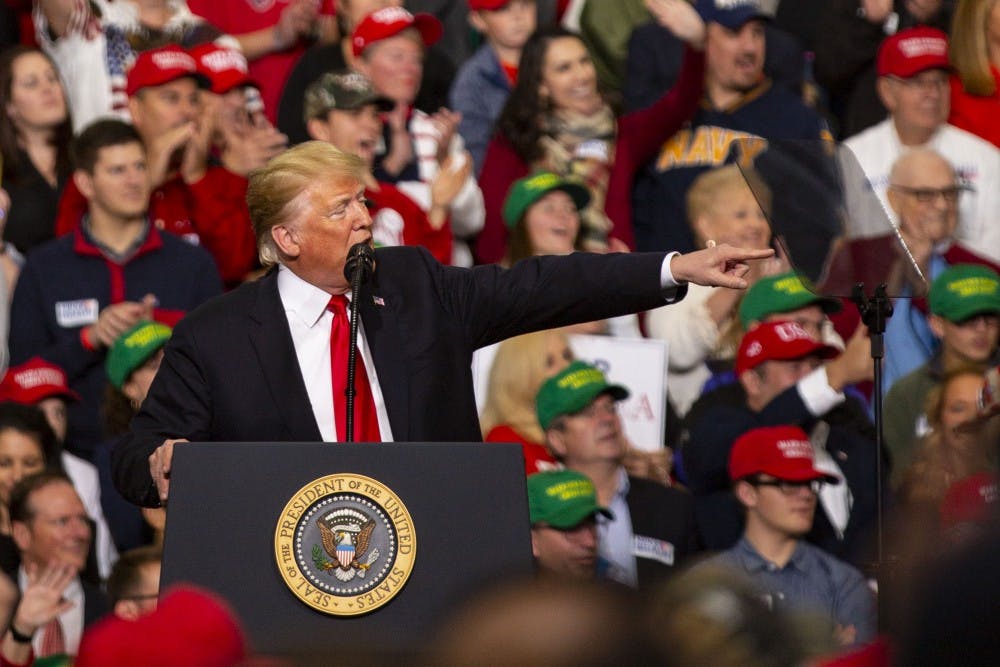The moment many opponents of President Trump have been anxiously awaiting for two years has come and gone without nearly as much fanfare as one might have expected.
Attorney General William Barr released his four-page summary of the report prepared by Special Counsel Robert Mueller on allegations of Russian interference in the 2016 presidential election and, more significantly, allegations that the Trump campaign conspired with the Russian government in that interference.
From what we can see in Barr’s summary, the Mueller report is a big, fat nothing-burger, at least when it comes to the issue of the alleged collusion between Trump and Russia. According to Barr, Mueller recommended no further indictments and did not find that anyone in the Trump campaign cooperated with Russian interference.
That’s not to say the Mueller investigation was meaningless. Over the course of the investigation, Mueller’s team indicted or received guilty pleas from 34 individuals and three companies relating to various charges. Six of those individuals are former Trump advisors.
Additionally, Barr’s letter mentions some matters that were pertinent to law enforcement but outside the scope of the special counsel’s mission were referred to other offices or agencies.
But let’s not pretend we don’t know what this was all about for the Democratic Party: The hope that Mueller would link Trump to Russian interference. That didn’t happen, and it won’t.
Some liberals, however, are continuing to rely on the fact that the American public and Congress haven’t received the full report yet as a way to keep the suspicion going. This is a political mistake.
Of course the general public should get access to the Mueller report. We have reason to believe we will at least see most of it. Barr’s letter acknowledges the public interest in the report. It explains it will be released when the Department of Justice finishes decisions about what information should be publicly available, with consideration for how the public availability of certain information could affect matters which Mueller referred to other offices. This should be around mid-April.
The U.S. government does have a habit of overclassifying information, and it very well might redact parts they shouldn’t. But let’s not pretend the main thrust will be any different than what it seems.
Sure, Barr was appointed by Trump and may be biased in his favor. But Deputy Attorney General Rod Rosenstein also reviewed the report, probably along with other Justice Department officials. Would they let Barr blatantly lie about the findings without speaking out?
Then there’s the issue of Mueller himself. Mueller and Barr have been friends and colleagues for three decades. Even if Barr wanted to publicly distort the report’s findings, there’s little to no chance that Mueller and his entire team would silently sit by as the American people were blatantly lied to.
Two years of unhinged press coverage of Russiagate has occupied enormous airtime that could have been devoted to much more consequential issues. During this whole debacle, there was a period of more than a full year in which MSNBC did not even once mention one of the world’s worst disasters being perpetuated by the Trump administration: The war in Yemen.
Cold War mentalities toward Russia have also been revived among liberals, leaving few voicing concern about the rising tensions between the world’s two biggest nuclear powers. Claims that Trump is a Russian asset have ignored that the Trump administration has at various times sharply contradicted Russian interests on Ukraine, Syria, NATO, the INF treaty and the Iran nuclear agreement.
Even if Trump could be indicted and impeached for the secondary issue of obstruction of justice, it would leave us with a Pence administration implementing the same policies and a large chunk of the country feeling that democracy had been overridden, which could lead to another Trump-like phenomenon.
Trump is guilty of countless injustices and even atrocities, but colluding with Russia isn’t one. Let’s put this to rest.






